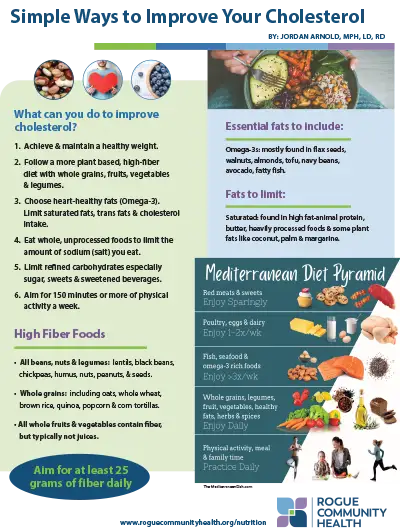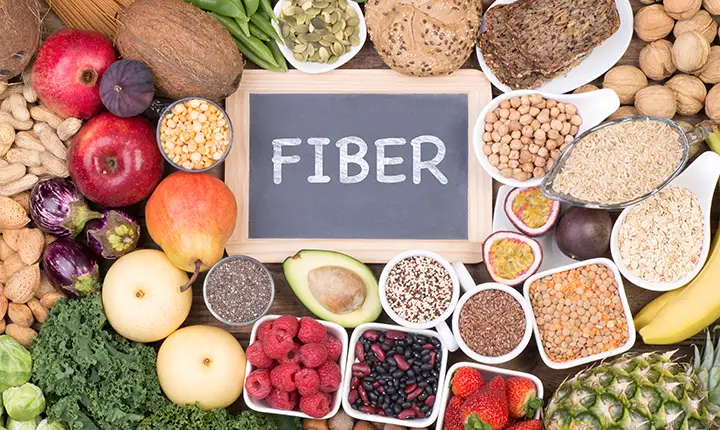Improve Your Cholesterol
Navigating the journey to better heart health starts with understanding the essentials of managing cholesterol levels. Adopting simple yet effective strategies allows you to take meaningful steps toward a heart-healthy lifestyle.
Achieve and Maintain a Healthy Weight
Weight plays a crucial role in how your body manages cholesterol. Achieving and maintaining a healthy weight is foundational to improving your cholesterol levels and overall heart health. It's not about drastic diets but a balanced lifestyle to sustain long-term.
The Power of Plants: Embrace a High-Fiber Diet
Switching to a diet rich in whole grains, fruits, vegetables, and legumes can significantly improve cholesterol levels. These delicious foods are also packed with fiber, which helps reduce cholesterol absorption into the bloodstream. Aim for at least 25 grams of fiber a day by incorporating the following foods:
- All beans, nuts, and legumes, including lentils, black beans, chickpeas, hummus, nuts, peanuts, and seeds;
- Whole grains, including oats, whole wheat, brown rice, quinoa, popcorn, and corn tortillas; and
- Whole fruits and vegetables, excluding juices.
Choose Your Fats Wisely: Heart-Healthy Omega-3s
Not all fats are created equal. While it’s important to limit intake of saturated fats and trans fats, heart-healthy fats like Omega-3 fatty acids can improve heart health by lowering triglyceride levels and reducing inflammation. You can find Omega-3 fats in flax seeds, walnuts, and fatty fish like salmon.
Keep it Real: Choose Whole, Unprocessed Foods
Processed foods are often high in sodium and unhealthy fats, which can negatively affect cholesterol levels. By choosing whole, unprocessed foods, you limit your salt intake and take advantage of the natural nutrients and fibers in these foods that support heart health.
Cut Down on Sugars: Limit Refined Carbohydrates
Refined sugars and carbohydrates can lead to weight gain and higher cholesterol levels. Reducing your intake of sweetened beverages, candies, and baked goods can help keep your cholesterol in check. Try satisfying your sweet tooth with natural sugars from fruits instead.
Get Moving: Add Activity to Your Routine
Exercise is vital in improving your cholesterol levels and overall heart health. Aiming for at least 150 minutes of physical activity each week can help raise HDL (good) cholesterol and lower LDL (bad) cholesterol and triglycerides.
Improving your cholesterol levels and heart health doesn’t have to be complicated. You can make a big difference in your overall well-being by making informed choices about your diet and lifestyle.






